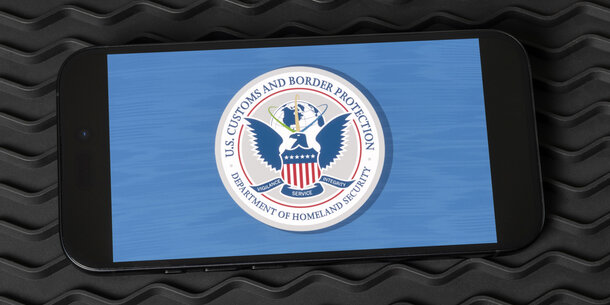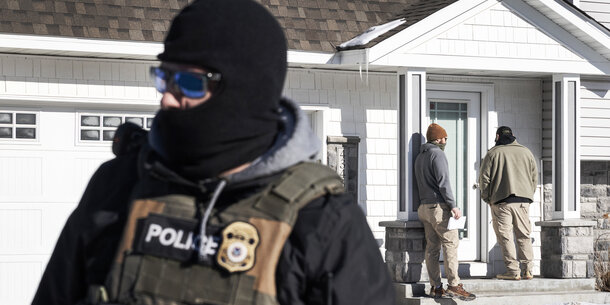This article originally appeared in Just Security
Recent news reports that the Trump Department of Justice secretly subpoenaed the communications records of lawmakers and journalists have provoked widespread outrage, and rightly so. Such actions threaten the independence of the press and undermine the separation of powers. Here, moreover, the publicly available information clearly suggests that the goal was to target political opponents of the president in the legislative branch and perceived enemies in the media.
In response, the Biden administration has pledged to issue regulations limiting the Department’s ability to subpoena reporters’ records and to strengthen policies against obtaining lawmakers’ data. But those solutions miss the bigger picture. What enabled the Department’s actions is the law’s failure to recognize the inherent sensitivity of communications information. It would be a mistake to settle for a policy that protects only a select few, while leaving the rest of us—including political activists and communities of color, who are frequently targets of unwarranted government scrutiny—vulnerable to governmental intrusions on our own constitutional rights.
Communications records were last at the center of public debate when Edward Snowden revealed that the National Security Agency (NSA) was collecting Americans’ phone records in bulk. The NSA relied on Section 215 of the USA PATRIOT Act, which authorizes collection of any tangible thing as long as the Foreign Intelligence Surveillance Court (FISC) agrees it is “relevant” to a foreign intelligence investigation. The relevance standard is one of the lowest thresholds in law, requiring no showing that the person whose records are sought is suspected of criminal activity or other wrongdoing. The government’s interpretation of “relevance,” endorsed by the FISC, encompassed the phone records of every person in the country based on the theory that relevant records were buried within all the irrelevant ones.
For many, the Snowden disclosures were a crash course in the sensitivity of phone records. Experts explained that the seemingly innocuous lists of originating and terminating phone numbers, dates, and times disguised a wealth of highly personal information. Using digital tools, government agencies can analyze the data and deduce a person’s associations, activities, and even beliefs. In some cases, we learned this so-called “metadata” can be more revealing than the communications’ content. For instance, if a person calls a suicide prevention hotline multiple times and hangs up before saying anything, the content is nonexistent—but the fact of the calls is highly revealing.
Congress ended the bulk collection program in 2015, and the public focus moved onto other privacy concerns, such as the government’s collection of geolocation information and web browsing history. But Congress never revoked the government’s authority to collect “relevant” communications records. Although the government must now specify its target, it can still obtain the target’s records without demonstrating any wrongdoing. It can also rely on several other authorities that provide access to the same or similar information on a low “relevance” showing, including pen-register/trap-and-trace authorities and so-called “2703(d) orders.”
In the case of the Trump administration’s collection of lawmakers’ and journalists’ communications records, the government invoked one of the broadest authorities it has: the grand jury subpoena. The word “jury” is often associated with robust protection against government overreach. The juries that render verdicts in criminal trials—“petit juries”—are indeed designed to provide such protection. They alone have the power to convict the defendant, and they alone decide whether the government has met its burden of proving guilt beyond a reasonable doubt.
Grand juries, however—and grand jury subpoenas in particular—are another matter. The purpose of the grand jury is to determine whether probable cause exists to bring criminal charges. No evidence of criminal activity is necessary to convene a federal grand jury; the standard is merely whether “the public interest so requires.”
Once a grand jury is convened, the prosecutor may issue subpoenas for “any books, papers, documents, data, or other objects.” In most instances, the prosecutor can take this action without the jurors’ approval or involvement. No showing—not even a showing of relevance—is required. Instead, a subpoenaed person or entity may move to quash the subpoena; a court will grant that motion only if the materials sought are clearly irrelevant to the investigation, or if the request is too vague or would impose an undue burden.
As potent as they are, grand jury subpoenas cannot be used to circumvent the Fourth Amendment or laws passed by Congress. The government may not obtain the content of communications with a grand jury subpoena; a warrant is required under Supreme Court case law as well as various statutory provisions.
But the law is notoriously slow to catch up with technology. Take the geolocation information that is constantly registered by cell phones and transmitted to service providers. Over time, a comprehensive record of a person’s precise location throughout the day can reveal extraordinarily sensitive information. Yet for many years, the law allowed the government to obtain this data with only a “relevance” showing. It was not until 2018 that the Supreme Court, in Carpenter v. United States, held that the government must obtain a warrant to compel production of historical cell site location information.
The battle over geolocation information continues. Congress has not incorporated Carpenter into its privacy laws, and the government argues that it can evade the warrant requirement by buying the data rather than compelling its production. But the current focus on geolocation information obscures the fact that we never fixed the communications metadata problem. Communications records, just like location records, can reveal a person’s activities and beliefs. Indeed, a primary reason the Supreme Court considered geolocation information to be so sensitive is that it can be used to ascertain a person’s associations. Communications records provide that same information more directly.
Decades ago, the Supreme Court held that the government did not need a warrant when tapping a phone wire to ascertain who was placing calls to a particular person. In light of technological advances that radically change the stakes of such collection, the Court might yet rethink (or distinguish) that decision. In the meantime, though, Congress should act to protect communications records with a statutory warrant requirement. And it should establish this protection for all people in this country—not just lawmakers and journalists.
After all, one reason why the recent news was so shocking is that investigations of lawmakers and journalists are rare. Unfortunately, the same cannot be said for government scrutiny of Black Lives Matter protesters, environmental activists, Muslim Americans who are simply practicing their religion, and countless people of color who are swept up in the criminal justice system because of their race or ethnicity. The constitutional rights of these individuals are every bit as important—not only to the people who hold them, but to the proper functioning of our democracy—as those of lawmakers and journalists.



